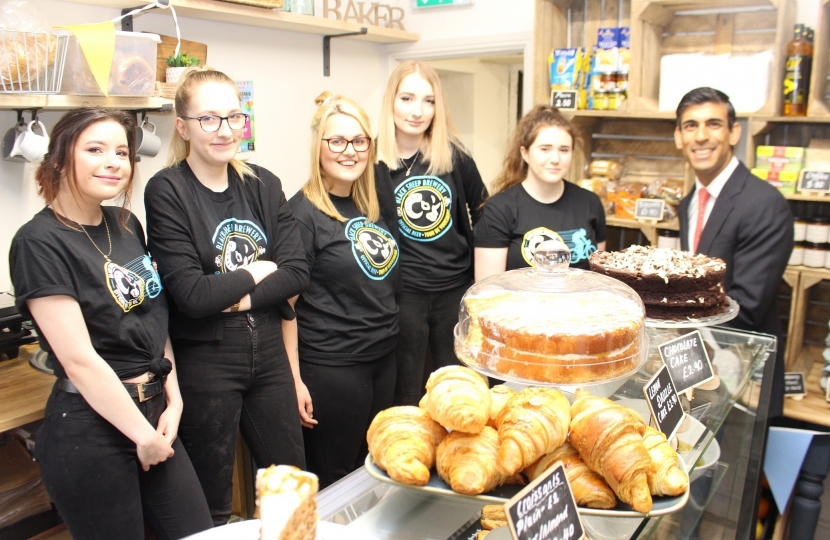
It is many people’s dream to run their own pub.
But we know it is by no means easy. The number of pubs that have closed in the last 30 years is testament to changing lifestyles and tastes.
Towns, cities and the countryside have been equally hard-hit but the greatest impact has been felt in rural Britain where the village pub is as important to the life of the community as the school or shop and post office. Often the pub is the last remaining community meeting place in a village
Thankfully, the rate of closure has slowed in recent years. My survey of the 70-plus pubs in the Richmond constituency last year showed that while many found a life struggle, many were also doing well on the back of their food trade and becoming the hub for their community, offering shop, post office or even library services.
Some of our most successful pubs are community pubs – that is pubs where local people have come together to purchase or lease their village pub and then running it as some form of co-operative with any profits being re-invested back into the business or the community.
The Foresters Arms at Carlton in Coverdale was the first in our area to trade as a community co-operative venture, closely followed by the George and Dragon at Hudswell, near Richmond, and then last year, the Green Dragon at Exelby, a venture which I am proud to have a small stake in.
Having paid visits in recent weeks to both Hudswell and Exelby, I can vouch for the extraordinary vibrancy of these community hubs and the commitment of the people who have created them. They are everything one might expect a village pub to be and so much more. Like the deli-café recently opened at the Green Dragon or the apiary and woodland at the George and Dragon.
Now there are plans for a community pub in Aldbrough St John, in the currently closed Stanwick Arms, and I am also aware of the Skeeby community’s longstanding ambition for something similar at the old Travellers Rest.
The Government is keen to help pubs survive and grow. In addition to the freezing of beer, cider and spirits duties since 2013, business rates have been cut by a third for the majority of medium-sized pubs and largely abolished for small village pubs.
There has also been support for the community pub movement which so far has a 100 per cent success rate (every community pub launched in recent years is still trading successfully). The £3.85m More than a Pub scheme was launched jointly by my department – the Ministry of Housing, Communities and Local Government – and the charity Power to Change in 2016.
Grants and loans are made available from the fund to assist communities purchase or lease their local pub and to help with developing business plans and also ideas to use premises as a community hub offering a range of other services.
I am pleased to say funding for More than a Pub has been extended and the programme will re-open for new applications next month. The fund is administered by the Plunket Foundation, the community business champions, to whom applications should made when the fun re-opens. More details from www.plunkett.co.uk.
